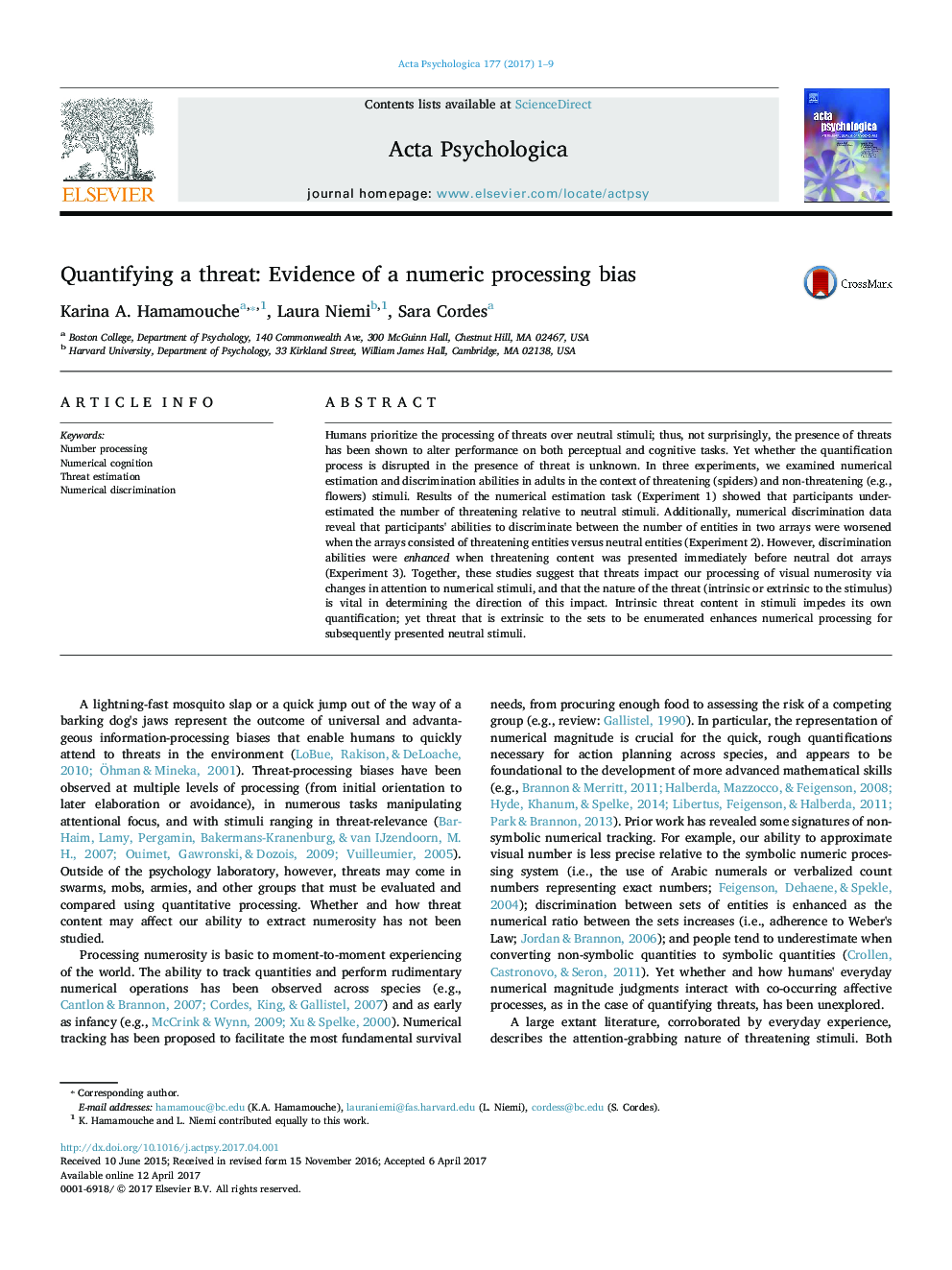| Article ID | Journal | Published Year | Pages | File Type |
|---|---|---|---|---|
| 5040265 | Acta Psychologica | 2017 | 9 Pages |
â¢We investigated numerical estimation and discrimination of threatening stimuli.â¢Adults underestimated the number of threatening objects relative to neutral objects (Experiment 1).â¢Numerical discrimination was impaired when sets consisted of threatening objects (Experiment 2).â¢Discrimination between neutral sets was enhanced following presentation of threats (Experiment 3).â¢Attentional effects on numerical processing from threats are implicated.
Humans prioritize the processing of threats over neutral stimuli; thus, not surprisingly, the presence of threats has been shown to alter performance on both perceptual and cognitive tasks. Yet whether the quantification process is disrupted in the presence of threat is unknown. In three experiments, we examined numerical estimation and discrimination abilities in adults in the context of threatening (spiders) and non-threatening (e.g., flowers) stimuli. Results of the numerical estimation task (Experiment 1) showed that participants underestimated the number of threatening relative to neutral stimuli. Additionally, numerical discrimination data reveal that participants' abilities to discriminate between the number of entities in two arrays were worsened when the arrays consisted of threatening entities versus neutral entities (Experiment 2). However, discrimination abilities were enhanced when threatening content was presented immediately before neutral dot arrays (Experiment 3). Together, these studies suggest that threats impact our processing of visual numerosity via changes in attention to numerical stimuli, and that the nature of the threat (intrinsic or extrinsic to the stimulus) is vital in determining the direction of this impact. Intrinsic threat content in stimuli impedes its own quantification; yet threat that is extrinsic to the sets to be enumerated enhances numerical processing for subsequently presented neutral stimuli.
